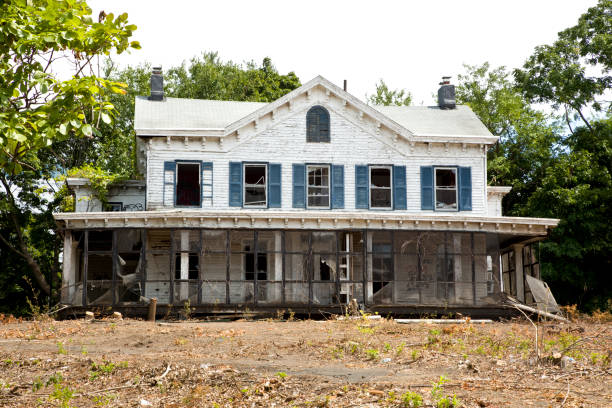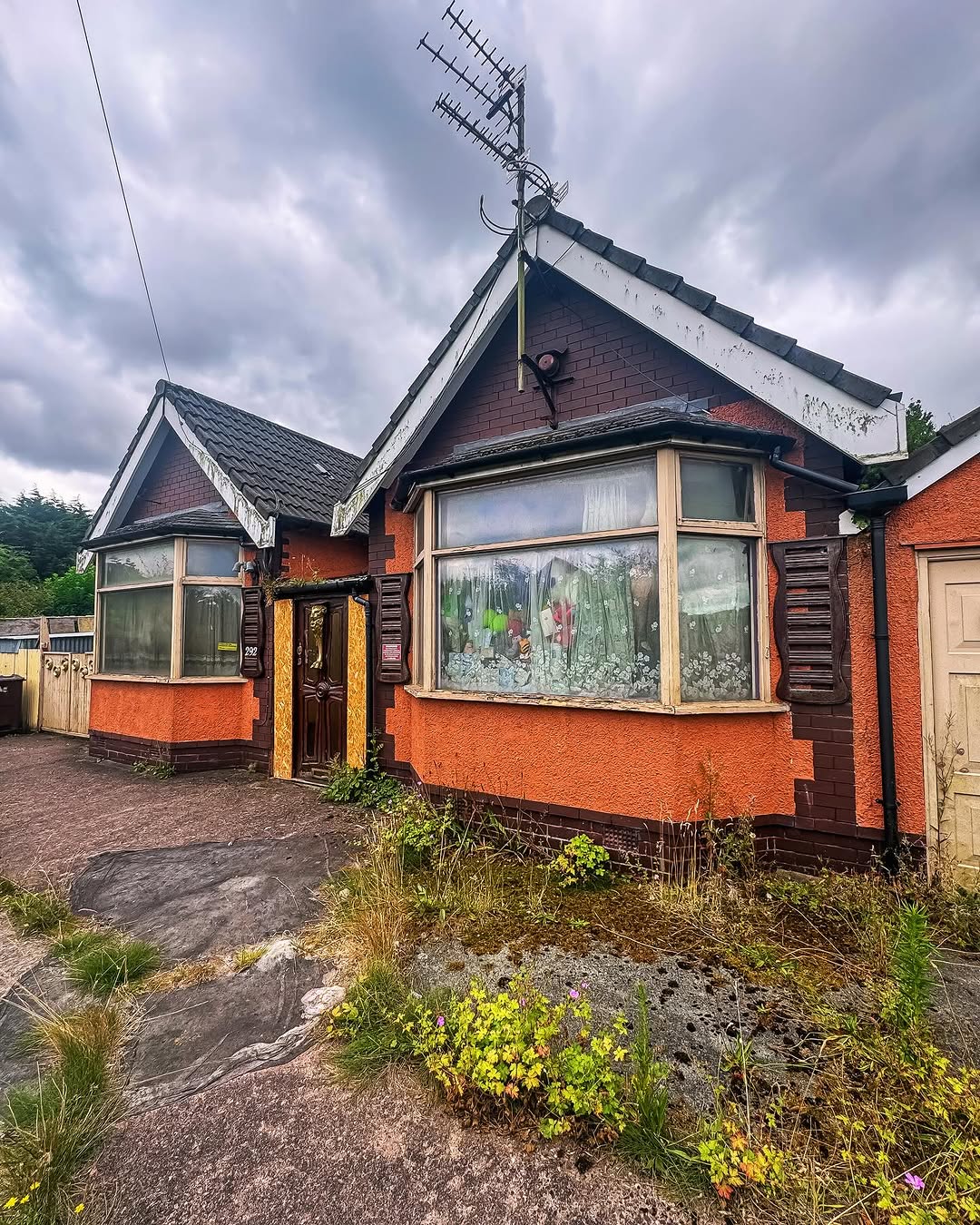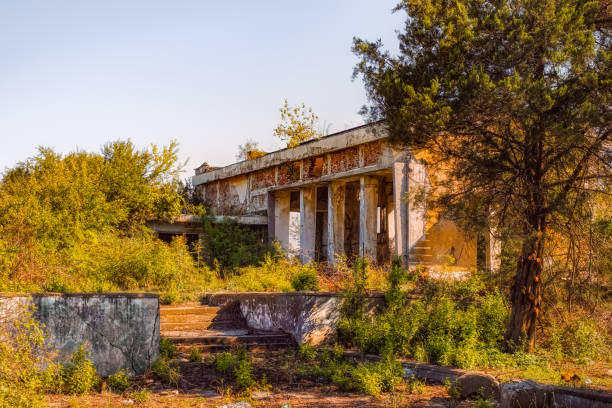There is something unique and fascinating about abandoned buildings that draws in people with a desire for investment. In New Jersey, there is no shortage of abandoned buildings for sale which offer potential buyers an opportunity to own a piece of history. They could be transformed into something new and exciting. These buildings often have a rich history and unique architectural features that make them stand out from other properties on the market. The desire of buying an abandoned building comes from an innate urge to restore and reclaim neglected spaces. It can be an old magnificent house, a once thriving factory, or a rundown warehouse. They can provide boundless opportunities for people who have the vision and the means to restore them.
The charm of derelict structures available for purchase in New Jersey is their innovative creative development projects. The prospect of converting an abandoned property into a boutique hotel, art gallery, or a mixed-used development excites a lot of buyers. For those buyers with a desire to impact the local community, the chance to revitalized a neglected space into a highly active and vibrant center of attention is incredibly appealing.
Real estate trends and issues concerning abandoned properties and their risks
While it can be quite intriguing to explore different types of abandoned buildings, there are certainly underlying dangers that comes with buying and refurbishing these places. A majority of the risks stem from the general uncertainty regarding the properties’ conditions, as many of them have been neglected for a number of years. Buyers should be expecting to pay a good price on renovations, specially for buildings that need repairs, updating to modern electrical systems and meeting current codes. In most cases, buyers will be faced with the harsh realization of structural issues that need resolving in the long run.

On the other hand, another risk that comes with abandoned buildings is noticing gaps in the permits that are legally required. There are many processes buyers must go through first before purchasing these properties. For instance, there are multiple issues like unpaid bills, zoning disputes, environmental concerns, and abandoned lots that also need to be resolved before purchasing. These are not only time consuming but add additional payout, buyers must work together with legal teams and real estate agents to get approvals on permits to construct and analyze the potential threats towards the properties’ safety. Lastly, one of the most concerning prospects is the danger of un decided zoning for the areas surrounding the property.
The procedure for buying an old structure in New Jersey and modernizing it
The procedure for buying an old structure in New Jersey and modernizing it may be multifaceted and difficult, but it is also highly gratifying if you have a clear strategy and do your homework. Identifying an appropriate property is the initial step in the procedure, which is to obtain and study its past, present condition, and any many required legal elements related to it. After doing the required work to narrow down their options, prospective buyers must engage with real estate experts such as brokers and lawyers so that they can assist in completing the buying process while making the buyers aware of all the liabilities and risks tied to the property.
Once buying an unused structure, the following step is to create an thorough renovation strategy that describes the work to be done, its estimated cost, and the timeframe within which the project will be completed. This might include engaging with architects, engineers, and contractors to check the building’s condition and formulate a plan to upgrade it to modern standards and bring it up to code. During the renovation, there is a need to resolve unexpected problems like structural changes and environmental challenges, and plans must be changed as needed. Lastly, after the renovation is done, buyers are free to consider different potential.
The issues of law and regulation when purchasing an obsolete construction
In New Jersey, there are some specific legal and regulatory issues with buying an forsaken property that buyers should keep in mind. One of the primary issues is evaluating possible claims regarding the property, open charges, contamination, and violations of laws pertaining to land use. Buyers should obtain professional help for assessing the property’s legal status and work with legal experts to ensure every aspect of the purchase is smooth and free of complications. Further, it is also necessary to understand the local zoning laws or other legal restrictions which would hinder remodeling or usage of the property for the intended purpose.

One more vital legal aspect to consider is knowing how to obtain a clear title for an abandoned building. Most of these properties have convoluted ownership patterns and could be intertwined with foreclosure or tax lien sales, which can hinder the transfer of title. It is crucial for buyers to cooperate with real estate experts so that they fully understand the title’s status and what challenges could arise while trying to buy the property. Lastly, buyers also need to understand any possible restrictions that may result from historic preser.
Assistance and resources for interested buyers of derelict structures in New Jersey
There is a lot of support and resources that can assist one in navigating through the process of renovating and redeveloping Abandoned Buildings in New Jersey. One useful resource is collaborating with real estate agents who focus on historic properties or revitalization projects. These agents can be extremely helpful in providing support during the purchasing phase such as conducting thorough due diligence and negotiating purchase agreements while dealing with all legal and regulatory requirements.
Moreover, there is a myriad of abandoned buildings renovation programs as well as tax incentives for businesses that aid in the restoration of communities in New Jersey. To illustrate, tax credits for the preservation of landmarks such as ancient structures may be provided to cover a portion of the expenditure for turning the old structures into usable spaces. Additionally, there are also state and local initiatives that financially back redevelopment projects aimed at enhancing the community.
In New Jersey, there exists various community organizations as well as nonprofit groups that are dedicated to the cause of restoring and preserving landmarks and ancient buildings.
![]()





